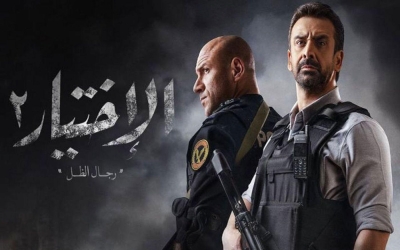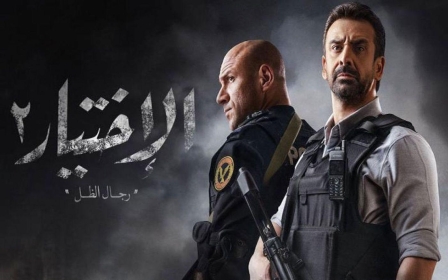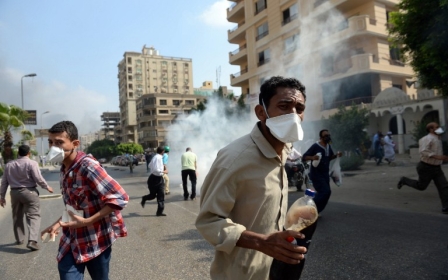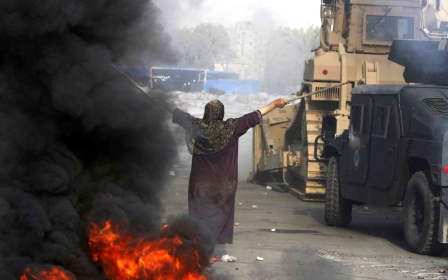Rights groups condemn Egypt's mass executions over police station attack
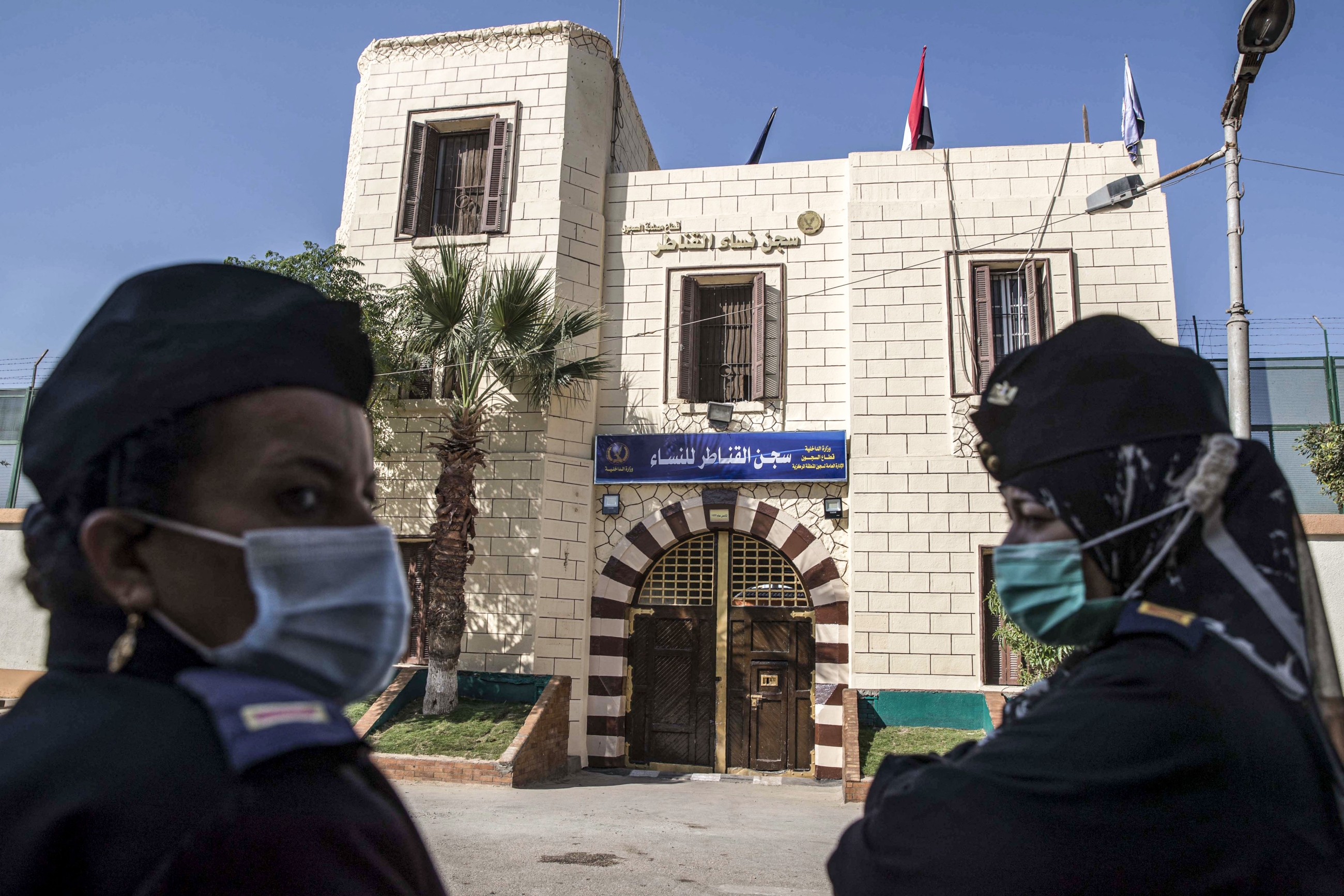
Egyptian authorities executed 17 people who were convicted of murder for an attack on a police station in 2013, not nine as initially reported by the country's interior ministry, lawyers representing their families have said.
Egypt's Ministry of Interior said in a statement on Monday that nine men who were found guilty of attacking a police station in the town of Kerdasa were executed by hanging.
But on Tuesday, lawyers representing the families of 17 of the defendants said all of the men were executed.
Rights groups had previously raised concerns over the legitimacy of the trials and stated that there was little evidence linking those executed with the attack on the police station.
Over 180 people were initially sentenced to death over the attack - one of the worst to occur on police in recent years. However, many had their convictions reduced or appealed.
Stay informed with MEE's newsletters
Sign up to get the latest alerts, insights and analysis, starting with Turkey Unpacked
The killing of the 13 policemen, which later became known as the Kerdasa massacre, came hours after Egyptian security forces stormed mass sit-ins in support of ousted former President Mohamed Morsi, in the Rabaa Square massacre.
The violent dispersals at Cairo's Rabaa al-Adawiya and al-Nahda squares have been called one of the largest killings of demonstrators in a single day by rights groups.
According to Amnesty International, one of the men executed on Monday was an 82-year-old who local media identified as a Quran teacher in poor health.
Online, many social media users used the deceased man's name, Sheikh Abd al-Rahim Jibril, to highlight his execution and demand justice.
Jeed Basyouni, head of the MENA team at Reprieve, a UK-based NGO, called the executions an act of "extraordinary cruelty" as they took place during Ramadan, one of the holiest and most revered months in the Islamic calendar.
"Executing these men without warning during Ramadan is an act of extraordinary cruelty, but by now, the Sisi regime's contempt for its international laws and norms comes as no surprise," she told Middle East Eye.
"This is the latest escalation in Egypt’s death penalty crisis that has seen record numbers of people executed and sentenced to death. Western states cannot continue to turn away from the grave human rights abuses committed by their Egyptian ally," she added.
According to the Arab Organisation for Human Rights (AOHR), a UK-based rights NGO, the identities of those who raided the police station remain unknown and there has been no concrete evidence linking the 17 men who were executed to the incident.
"Many of the testimonies were extracted under torture, and are therefore inadmissible," a statement from the organisation said.
AOHR also stated that the executions were part of a wider campaign of repression against critics of Egyptian President Abdel Fattah el-Sisi.
"Dissidents in Egypt suffer serious violations since the moment of their arrest, followed by subjecting them to enforced disappearance and denying them communication with the outside world," their statement read.
Philip Luther, Amnesty International's Middle East and North Africa research and advocacy director, said the executions came following a grossly unfair trial.
"[This] is a chilling demonstration of the Egyptian authorities' disregard for the right to life and their obligations under international law."
"By carrying out these executions during the holy month of Ramadan, the Egyptian authorities have displayed a ruthless determination to persist with their escalating use of the death penalty," he added.
The Egyptian Commission for Rights and Freedoms (ECRF), a Cairo-based rights organisation, has reported that at least 50 death sentences have been handed down and at least 39 implemented since the start of the year.
Earlier this month, an Egyptian Ramadan TV series called Al Iktiyaar 2 (The Choice 2) came under fierce criticism for its portrayal of the Kerdassa killings and the Rabaa massacre.
Social media users called the TV series a "rewriting of history" and said it falsified events in order to demonise the opposition and portray the army and security forces positively.
The AOHR also slammed the show, calling it an attempt to change the reality on the ground.
"The state attempts to give this campaign of repression a veneer of legitimacy through funding television series such as The Choice - a programme that attempts to launder the regime's crimes against its critics."
In a report shared with Middle East Eye, the NGO said at least 26 people are at risk of imminent execution in the country, after being charged with a range of political and non-political criminal charges.
"Mass trials continue to proceed despite widespread international condemnation that they are simply unfit to meet the basic requirements of international law on due process and fair trial rights," the report said.
Middle East Eye delivers independent and unrivalled coverage and analysis of the Middle East, North Africa and beyond. To learn more about republishing this content and the associated fees, please fill out this form. More about MEE can be found here.


